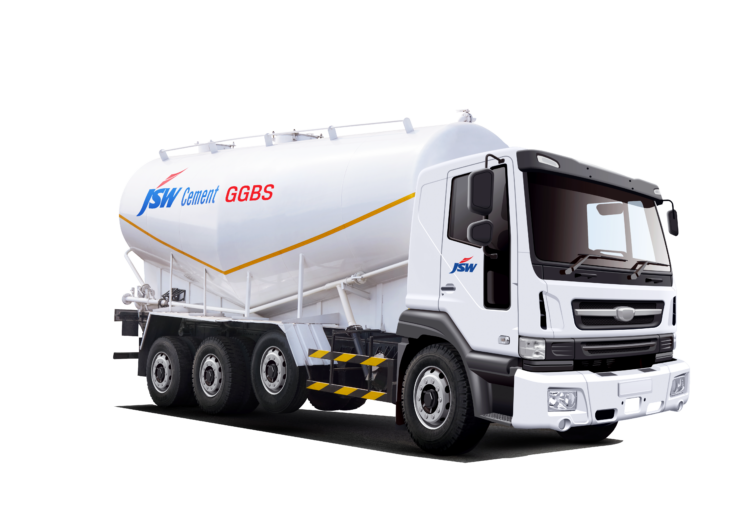It wasn’t just the COVID-19 pandemic that the cement industry in India had to deal with in the past four years, starting in March 2020 when most governments across the world ordered lockdowns. Russia’s invasion of Ukraine in February 2022 also dealt a major blow.
The spread of the coronavirus slowed economic activity, disrupted the supply chains, restricted travel and people movement, and impacted people’s health and well-being, which are inimical to any industry.
But the Russia-Ukraine conflict choked off the commodities supply it imports from the two countries including coal, oil, natural gas, and nuclear fuel, bringing energy prices to the roof.
For JSW Cement, a conglomerate involved in the businesses of steel, cement, energy, and infrastructure, the one-two punch is an opportunity. It has accelerated the company’s shift to renewable energy.

“The cement industry is material and energy intensive. I would say that [in cement manufacturing] maybe 40% to 50% of the cost was towards energy. With the energy crisis, there is pressure to move from coal to alternative fuels that are locally available, and which are waste from other industries,” said Manoj Rustagi, the company’s chief sustainability and innovation officer.
These alternatives include municipal waste, refuse-derived fuel (RDF), pharmaceutical waste, waste from the tar industry, and master limited partnership (MLP), according to Rustaqi.
“We have accelerated the transition and the idea is to be using 8% to 10% of the alternative fuel, but this should go up to 30% to 40% in the next six to seven years." Manoj Rustagi
Greening the business
JSW Cement is part of the diversified US$23 billion JSW Group, which is among the largest steel manufacturing companies in India with 30 million metric tons (MT) of production capacity. Its cement business, JSW Cement, which was founded in 2009, has a production capacity of around 19 MT. The goal is to bring cement production to roughly 50MT by 2030, according to Rustagi.
JSW Cement’s sustainability officer said the company has a unique model that aligns very well with the principles of Environmental, Social, and Governance (ESG) and sustainability.
“Within steel manufacturing, we have got a base that is generated which is called blast-furnace slag. For every 1 ton of steel, approximately 400 kg of this blast-furnace slag is generated. In 2009, we realised that there was a technology that would allow us to use that waste material (ground granulated blast-furnace slag) to make slag cement and create value out of it. That's how JSW Cement was born,” Rustagi shared.
JSW Portland Slag cement today is a blended cement, wherein some portion of ordinary Portland cement is replaced with GGBS, according to its website. The substation with slag results in a lower clinker factor; hence, the global warming potential of the product is found to be one of the lowest in the industry, the company said.
Rustagi shared that the company has started quantifying data and measuring its carbon footprint, validating it and aligning it to the global frameworks.
“The journey in the last three years has been very exciting for us. it validates the business model. The whole concept of ESG and sustainability globally is evolving because there is a fear of climate change and climate catastrophe,” Rustagi said.
In support of nation-building
Indian Prime Minister Narendra Modi pledged that India would cut its emissions target to net zero by 2070 at the 26th Conference of Parties (COP) to the United Nations Framework Convention on Climate Change (UNFCCC) held in Glasgow, Scotland, in November 2021.
Earlier in March, the Indian parliament passed a law establishing a national development finance institution that aims to have a lending portfolio of at least 5 trillion rupees in three years for infrastructure development.
These twin developments put JSW Cement into the heart of India’s infrastructure and climate push. The company has been ramping up its sustainability and innovation strategies since then.
In June 2021, it expanded its green product offering to include a new line of construction chemicals, including ready mix plaster, crystalline waterproofing compound, and floor hardener. It also launched a ready-mix concrete business under the brand name JSW Concrete, which includes eco-friendly variants for infrastructure projects.
“The idea is to have a portfolio of the products, which is for the construction companies and the contractors for their construction requirements,” Rustagi said. “Innovation goes very well with the sustainability agenda”
Within innovation, he said JSW Cement is looking to develop more sustainable products, [such as] new low-carbon cement and concrete. “The opportunity today, and specifically in India, which is a developing country, is the infrastructure that is getting built now,” he said.
In its most recent annual report, JSW Cement Chairman Nirmal Kumar Jain reiterated the company’s commitment to decarbonise its operations, contribute to the circular economy, and cater to the emerging demand for sustainable building materials.

Meanwhile, CEO Nilesh Narwekar said that while 2021 and 2022 continued to be another year of resilience as disruptions continued, the company had achieved Specific Net CO2 emissions intensity of 216 kg CO2 per ton of cementitious material during fiscal year 2020 and 2021, which is ~1/3 of the world average and ~38% of India average.
“This showcases our unwavering commitment towards decarbonising our operations. Around 88% of our product portfolio is blended cement and cementitious products." Nilesh Narwekar
Moving on, embracing change
The World Health Organization reported that from January 2020 to August 2023, there have been over 44.9 confirmed COVID-19 cases with over 5.3 million deaths in India. The world is moving on and embracing change. While geopolitical tensions remain and the Russia-Ukraine conflict is far from resolved, industries have developed resilience amid several crises. “We live in a dynamic world and embracing change is important," Rustagi said.
* Editor's notes: This article is part of the Cxociety Coffee Table Book project (The Project) which chronicles the journey and experiences of senior business, operations, finance and technology leaders in Asia in recent years. The Project illustrates the tenacity, ingenuity and resiliency of the human spirit in the face of seemingly endless challenges.
With nearly 50 stories chronicled in The Project, it is a must-read compendium of learnings and experiences from seasoned professionals in the region.



